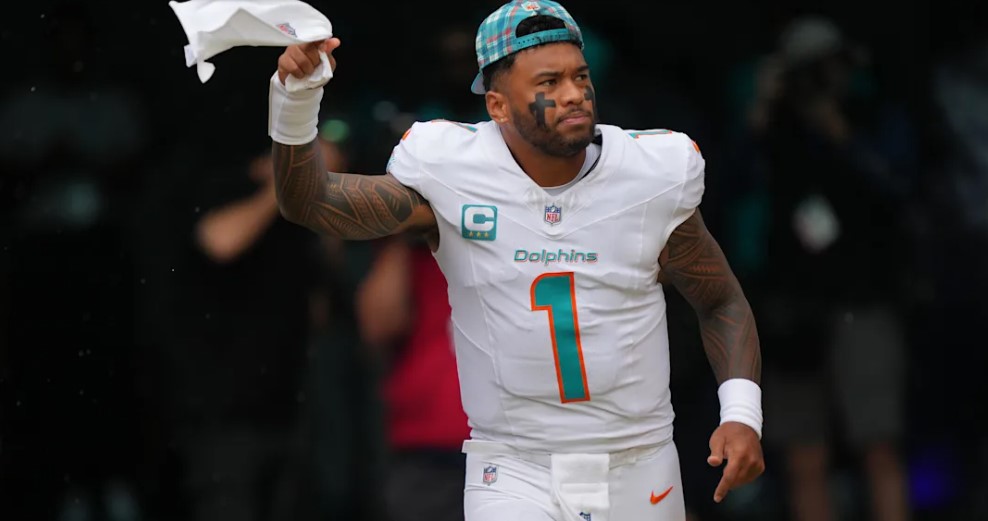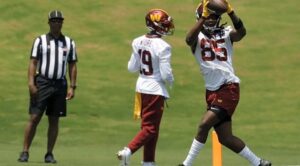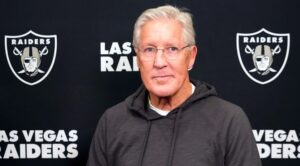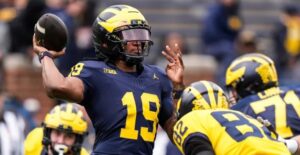
Tua Tagovailoa made a notable comeback for the Miami Dolphins on Sunday after a significant absence of four games, which was a result of a concerning concussion sustained during a Week 2 loss to the Buffalo Bills. This latest head injury led to widespread discussions about Tagovailoa’s future in football, with many advocates urging him to consider stepping away from the game entirely for his own health and safety.
Prior to his return, Tagovailoa underwent consultations with multiple doctors and was ultimately cleared to play, reflecting his strong desire to return to the field. His passion for the game is evident, albeit with the potential risk it poses to his well-being. This is a common theme among professional athletes, particularly football players, who routinely put their bodies on the line for the sake of competition and entertainment.
The crowd erupts after Tua slides for the first down pic.twitter.com/IPOYxg9CBo
— Dolphin Nation (@Dolphin_Nation) October 27, 2024
Tagovailoa’s situation has drawn heightened attention not only because of his prominent position as a quarterback but also due to his celebrated collegiate career, which included a memorable walk-off touchdown in the national championship as a true freshman. This kind of high visibility in college football naturally magnifies the scrutiny he faces in the NFL.
The Dolphins’ offensive performance suffered significantly in Tagovailoa’s absence, with the team accumulating only 40 points over four games and managing a 1-3 record. The lone victory came against a struggling New England Patriots team, highlighting the struggles Miami faced without their starting quarterback.
Upon his return, Tagovailoa was expected to provide a much-needed spark to the offense. However, the game against the Arizona Cardinals did not go as hoped; the Dolphins lost a close match, 28-27. Ironically, the 27 points they scored would have been enough to win in all but one of the games played during his absence, underscoring the frustrating nature of their situation.
Despite the loss, there were several positive aspects regarding Tagovailoa’s performance and health. He successfully walked off the field after the game without any further injuries, a significant victory considering the circumstances surrounding his previous head trauma. His decision to slide to avoid a hit during the game was a testament to his awareness and self-care, something that fans and the organization were undoubtedly relieved to see.
In terms of statistics, Tagovailoa had a commendable performance, completing 28 out of 38 passes for 234 yards and securing one touchdown. Despite the Dolphins falling to 2-5 with this loss, the focus remained on Tagovailoa’s health rather than the team’s dismal record. Observers noted the relief in watching him back on the field, but also shared a collective anxiety each time he was in a position to take a hit.
It’s clear that Tagovailoa is a remarkable talent who deserves the opportunity to play on his own terms, rather than having his career jeopardized by injuries. There remains a concern about the long-term implications of his health, but it is difficult to convince an athlete, especially a young competitor like Tagovailoa, to consider these risks. The innate drive for excellence and competition often overshadows the caution that others might suggest.
Overall, Tagovailoa’s return was a mix of relief and caution for fans and teammates alike. His ability to play well and walk away healthy is a win, but the overarching questions about his future in the sport linger on. As he continues to navigate the complexities of playing in the NFL, those who support him will undoubtedly hope for a season where he can play freely and without fear of injury.





